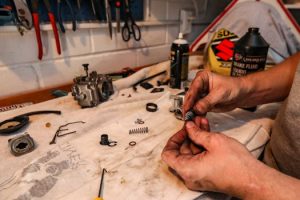Spotting Common Car Scams and How to Avoid Them
Buying a car can be an exciting yet daunting experience. With so many options available in the market, it can be difficult to determine which one is right for you. On top of that, there are also risks of falling victim to car scams. These scams can potentially cost you a lot of money and leave you with a vehicle that is unreliable or unsafe. To help you navigate through this process, we have put together a guide on spotting common car scams and how to avoid them. So, before you drive off in your dream car, make sure you read this article to protect yourself from any potential scams.
Private Sellers vs Dealerships
One of the first decisions you need to make when buying a car is whether to purchase from a private seller or a dealership. While buying from a private seller may seem like a more affordable option, it also poses a higher risk of car scams. Private sellers are not regulated like dealerships and do not have to adhere to strict guidelines. This makes it easier for dishonest sellers to deceive potential buyers. Therefore, it is important to be extra cautious when dealing with private sellers.
On the other hand, buying from a dealership can offer you more protection against scams. They are more likely to have a variety of financing options and provide warranties for their vehicles. However, this does not mean that you are completely safe from car scams. It is still crucial to be aware of common dealership scams and take necessary precautions.
Common Car Scams to Look Out For
1. Title Washing: This is a scam where a dealership sells a car with a damaged title. They will attempt to “wash” the title by transferring it to another state with lenient laws regarding title branding. This makes it nearly impossible for buyers to know if there were any previous damages to the car.
2. Odometer Fraud: Another common dealership scam is tampering with the odometer. This is done to hide the actual mileage of the vehicle. A vehicle with lower mileage appears to be in better condition and can be sold at a higher price. To avoid falling victim to this scam, always ask for the vehicle’s service records to verify the mileage.
3. Bait and Switch: This is a popular tactic used by dealerships, where they advertise a car at a low price to attract potential buyers, but in reality, that car is no longer available. Once the buyer shows interest, the dealership will try to push a more expensive car on them. To avoid being a victim of this scam, always call ahead to confirm the car’s availability before visiting the dealership.
How to Protect Yourself
Now that you are aware of some common car scams, here are some ways you can protect yourself:
1. Do Your Research: Before purchasing a car, do some research on the make and model you are interested in. Look at different dealerships and compare prices to get an idea of the market value. This will help you identify any red flags and avoid overpriced cars.
2. Get a Vehicle History Report: A vehicle history report can provide you with valuable information about the car’s past, including any accidents, flood damage, or salvage title. This will help you make an informed decision about the car’s condition and its true value.
3. Have the Car Inspected by a Mechanic: Before finalizing the purchase, have the car inspected by a trusted mechanic. They can identify any potential issues with the car that the seller may not disclose.
4. Use Secure Payment Methods: Scammers often ask for payment through wire transfer or cash, making it difficult to get your money back if the deal goes wrong. It is always safest to use a secure payment method, such as a cashier’s check or direct bank transfer.
5. Trust Your Gut: If a deal seems too good to be true, it probably is. Trust your instincts and walk away if something seems suspicious. Do not be pressured into making a hasty decision.
In Conclusion
Buying a car is a significant investment, and being aware of common car scams can save you from potential financial loss. By doing your research, being cautious, and taking necessary precautions, you can confidently purchase a car without falling victim to any scams. Always remember, if something feels off, it is better to walk away than to regret your decision later.








